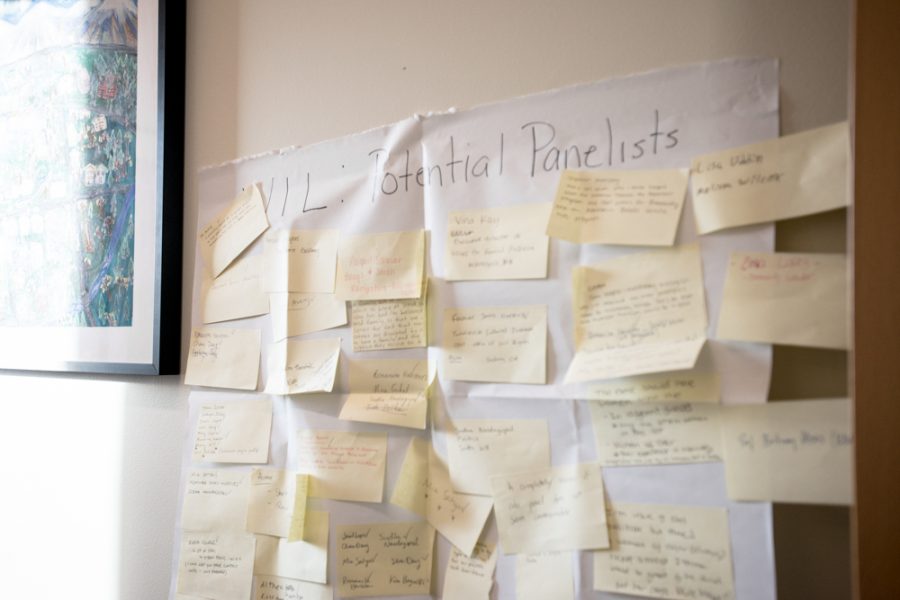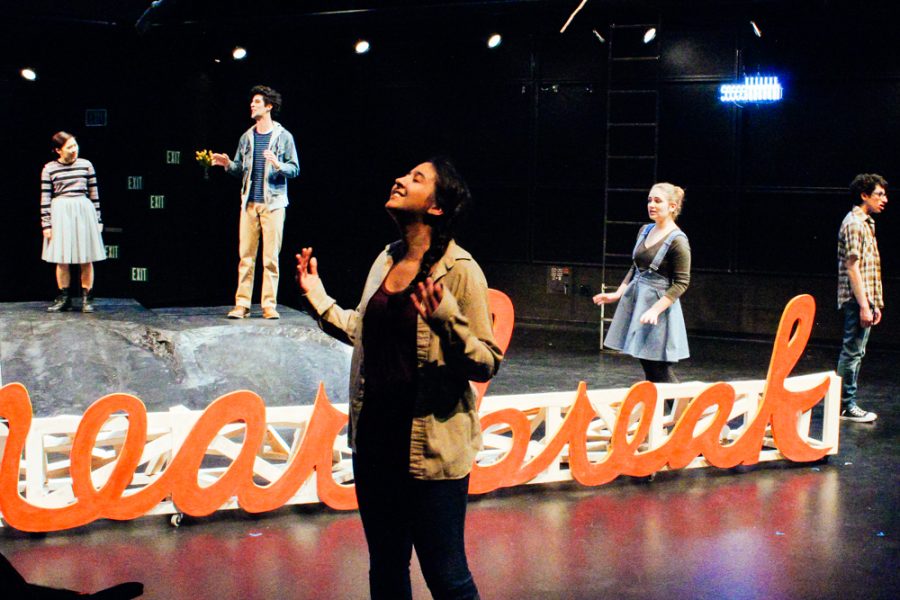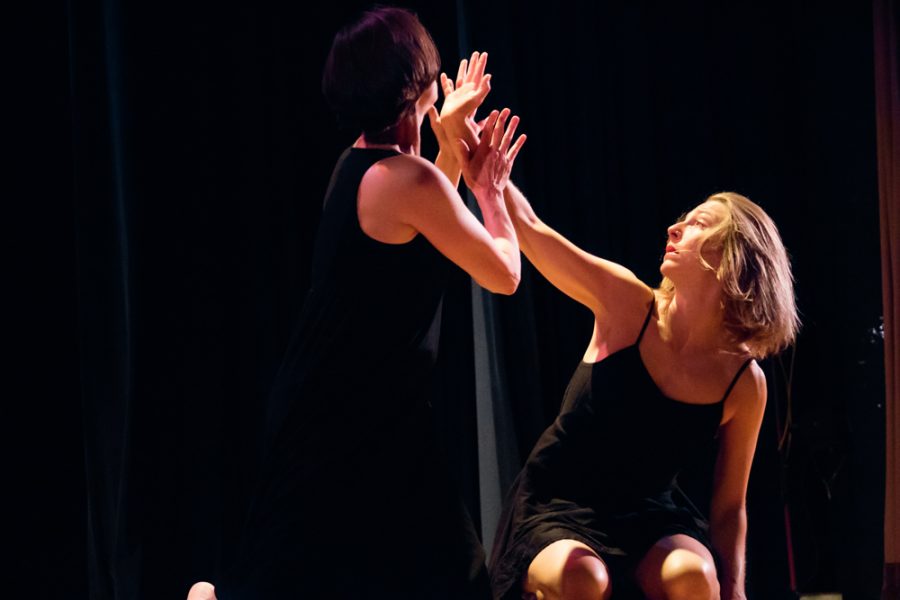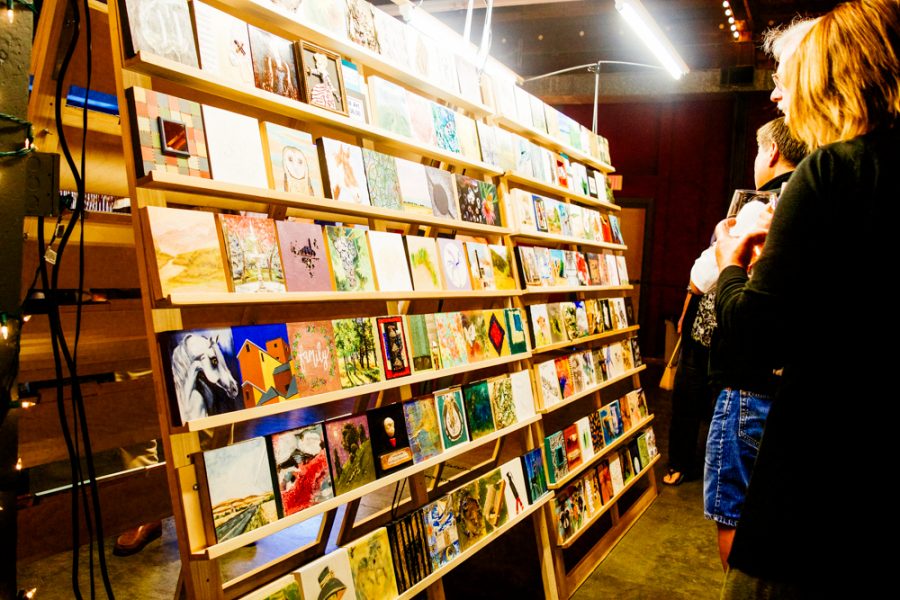Whitman alumnus Bill Murray ’92 returned to campus this last week to present a lecture on his experiences as an embedded journalist in Iraq for the Hosokawa Endowed Lecture series. As part of his stay he met with The Pioneer to give this interview.
Listen to the full speech that Bill Murray gave on campus
WHY DID YOU WANT TO GO INTO JOURNALISM IN THE FIRST PLACE?
My first experience with journalism was with the Pio, so some of the things I started at Whitman I’ve continued to do since then. My experience on the Pio for a couple years was something I found I could be good at. In undergraduate years you’re always looking for how you fit. So that’s what motivated me. My first job out of Whitman was radio journalism, so between working on the Pio and having a couple of spots on KWCW it seemed to be something I could do.
WHAT IS YOUR FAVORITE STORY YOU HAVE COVERED SO FAR AND WHY?
When I started working for Bloomberg in 2000 it was during the presidential campaign, so it was kind of fun. We were able to stay back in Washington since everybody on staff was going to cover the campaign. Then there was the recount that took place in Florida, after about 30 days when people were burning out: they didn’t know how long this recount would go. They sent me down for the last five days to cover that. That was fascinating. It was one of the biggest stories you could think of and I was only at that point a year out of graduate school in journalism.
When I was in Alaska the radio station was small and you could do whatever you wanted. I covered basketball games. I also covered dog races and snow mobile races. One of the snow mobile races was a 250 mile race that circulated the region and I got to cover it and do phone interviews for all these little villages and then ride on the back of snow mobiles to get to the next place. That was cool. Doing stuff like that is just the most fun thing I’ve covered.
DID YOUR EXPERIENCES AT WHITMAN, BOTH JOURNALISTIC AND NON-JOURNALISTIC, PREPARE YOU FOR YOUR CAREER CHOICE? IN WHAT WAYS?
Yes. Writing is hard. Writing is a skill. Some people are more gifted than others, but most of us have to work at it. If there is one thing that you are forced to do even as a science major, but especially as a humanities or a social science major, it’s to wrote. The idea that being forced to write when you’re not at your best is actually almost equivalent to what you do in journalism because you can’t pick your times and you just have to show up every day and do your best.
HOW HAS WHITMAN CHANGED SINCE YOU WERE HERE?
The students themselves seem pretty much the same: engaged, interested, good at multi-tasking, involved in a lot of different activities. Ask better questions than usual. People are a bit more interested, a bit more engaged and that hasn’t really changed. A lot of the other thing seem similar. There are more interest houses now than there were in the past.
WHY DID YOU CHOOSE TO COVER THE WAR IN IRAQ?
I had been in the army reserves in the 90s so the idea of military activities was not a foreign one to me. I covered the recount and I covered 9/11. I was in Washington so I covered the Pentagon attack and it seemed that professionally: Iraq being such a good view on the whole War on Terror: we were covering business mostly. We didn’t have anybody in Iraq so I wouldn’t have had a chance to go somewhere. Then the timing came about that perhaps I could embed myself: and it wasn’t always possible that a freelancer could: and also I wanted to test a couple propositions about coverage of the war. I never felt I could properly cover it for a variety of reasons. I wanted to see how much news was out there to be gathered and the ease or ill-ease with which it could be gathered, so I was kind of curious to test some propositions.
WAS IRAQ HOW YOU EXPECTED IT TO BE? WHY OR WHY NOT?
I don’t know what I expected. There are always surprises. The thing that really stood out for me was that I finally got an answer as to where all the money went, the amount of money that seems obvious once you get there. The infrastructure that the taxpayer pays goes into things like food service corps and gymnasiums and all these ancillary things that the military feel: probably correctly: are needed to keep someone in the army equipped. You have to try and reduplicate at least to some measure their home and the costs to do that are phenomenal, so that was an interesting side that I had never gotten an idea of. Other than that I didn’t have any preconceived notions.
DO YOU FEEL THAT COVERING THE WAR IN IRAQ CHANGED THE WAY YOU VIEW THE WORLD?
Professionally it was a good experience. I may have learned some things in terms of the difference between working for someone and working for yourself, but those are lessons you might learn in other ways too. It made me a bit more entrepreneurial, but other than that I don’t know. Perhaps it might have created a little more self discipline when taking care of the way you work because all of the gear I had for months and months: everything I had was what I had to carry. If you lose an integral piece of equipment it is very tough to make up for it.
WHAT NEW EXPERIENCES DO YOU HOPE TO HAVE IN THE FUTURE OF JOURNALISM?
I’d like to teach some. I think journalism is going into a big phase of change and I think it is a very interesting time. Right now I live in Washington D.C. and cover Congress. That’s a pretty good thing to do right now, but I would like to help people be more critical about the way they read journalism. I would like to raise the consumer standards, because essentially we get the kind of journalism that we are willing to pay for and right now we don’t pay anything, but we can’t always count on that. We could probably do with more critical thinking about the way we imbibe news and that would ultimately make society better. In other words, you could judge these organizations against each other. It is all in the same pot. That would be interesting for me.





